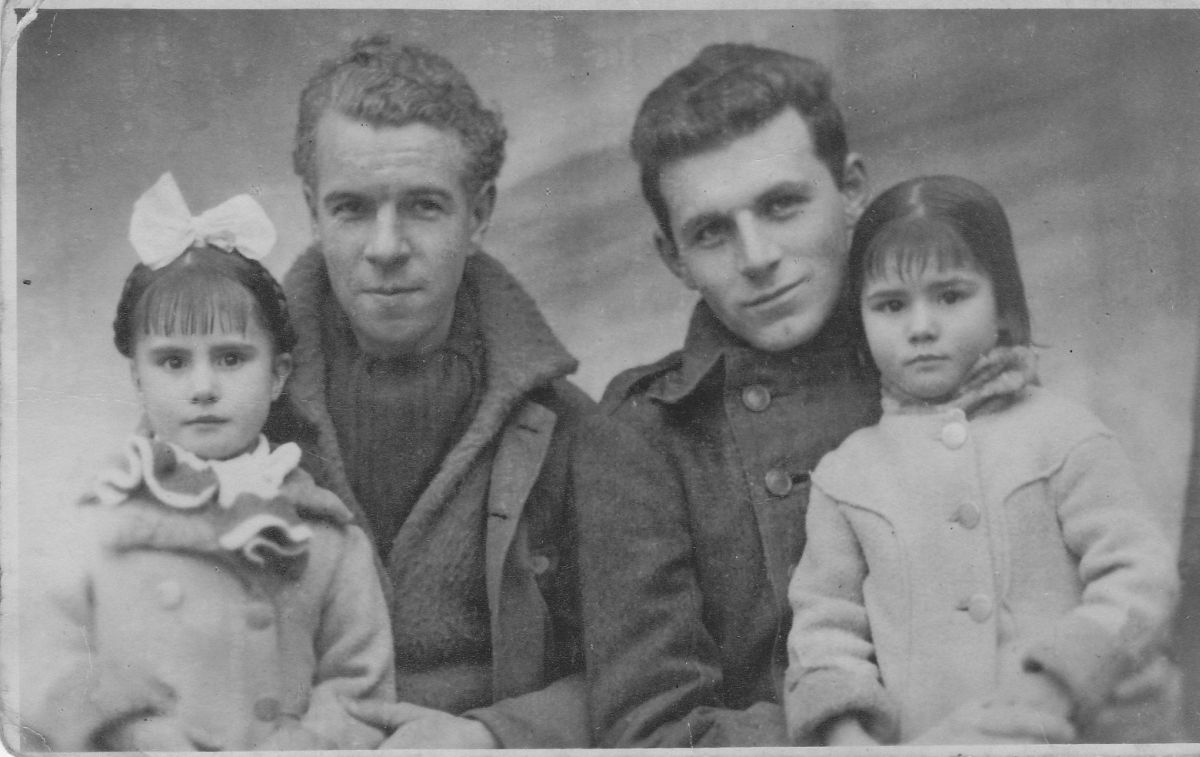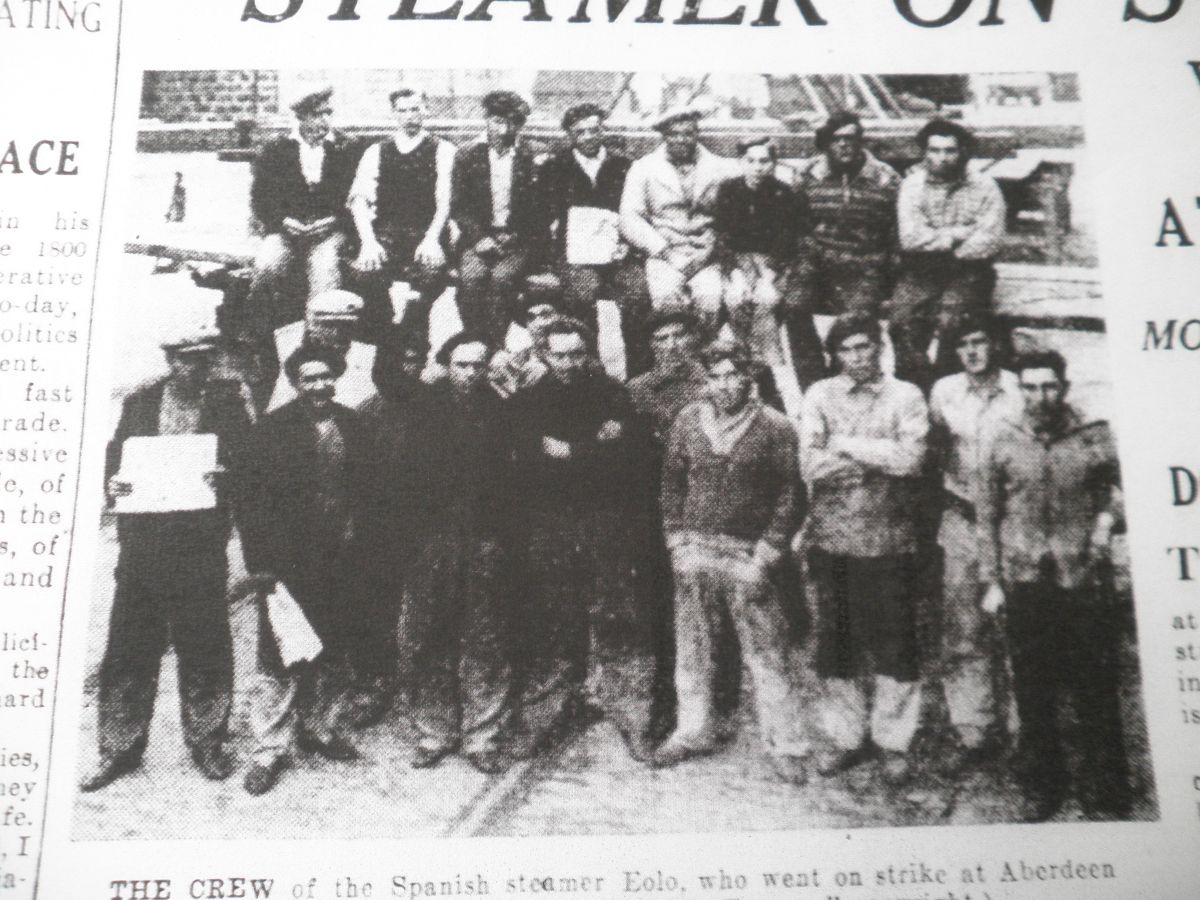By Nina C Londragan.
The Spanish Steamship Eolo, berthed in Blaikie’s Quay, Aberdeen Harbour exactly eighty years ago. From May – September 1936.
When its owners and Captain failed to comply with legislation granting Spanish seaman increased wages, the crew went on strike and turned off steam so their part cargo of grain could not be unloaded.
Aberdeen Dockers, in full sympathy, along with other workers and trade unionists rallied together to befriend, support and collect for the thirty three men.
Impressively the seamen held strong to their demands for higher wages, better food and working conditions for 15 weeks until full settlement had been made, cementing the Granite City’s bond of unity with Spain into the Spanish Civil War and beyond.
Surprising Sequel in Spain:
Nineteen men, strongly motivated by discussions with the seamen, courageously left Aberdeen to fight for freedom and democracy in the Spanish Civil War (1936-1939). Five of these men made the ultimate sacrifice – giving their lives in the battle against Fascism.
Serving in the Anti-Tank battery, during the Battle of Brunete, John Londragan sustained severe wounds. Restless recuperating, he walked to a nearby village, Albares, where by amazing coincidence, it transpired that a local shop owner was the father of his friend – Juan Attaro, one of the crew from the Eolo. Juan had heard all about Aberdeen’s hospitality in “glowing terms”.

John Londragan (left) photographed in Spain 1937 with American Brigader, Peter Frye and Juan’s two daughters.
Still for me the story was not only a personal one, where my Grandfather John Londragan played a prominent role, but as an Aberdonian myself. I felt great pride in the Granite city’s demonstration of warmth and political strength, so it was a real honour to be able to compile this as a valuable piece of history to be displayed by Aberdeen Maritime Museum.
The project has gained strong support from Trade Unions, Aberdeen City Council and local media, as well as being positively welcomed by Scottish Parliament.
The opening took place on Saturday May 28th – with a very successful and well attended launch event organised by Tommy Campbell, Regional Officer of Unite.
Shades of Eolo:
Ironically the relevance of this poignant story, is still sharply reflected in current affairs today where in Aberdeen Harbour, the MV Malaviya Seven, an offshore supply vessel, has recently been impounded amid shocking allegations of “Modern Day Slavery”. Although the Indian crew are not on strike like the Spanish Seamen in 1936, they share similar issues such as working conditions and wages withheld by employers.
Again these are seamen stranded miles from home, without food or money. Luckily they have come to the right city as Aberdeen steps forward yet again, in solidarity to welcome and support them.
Remembering Aberdeen’s Solidarity with the Spanish Seamen’s Strike 1936:
Open until September 10th 2016 at
The Aberdeen Maritime Museum
52-56 Shiprow, Provost Ross House
Aberdeen, AB11 5BY
Opening hours:
Monday – Saturday 10am -5pm
Sunday 12 noon – 3pm
- Comments enabled – see comments box below. Note, all comments will be moderated.

